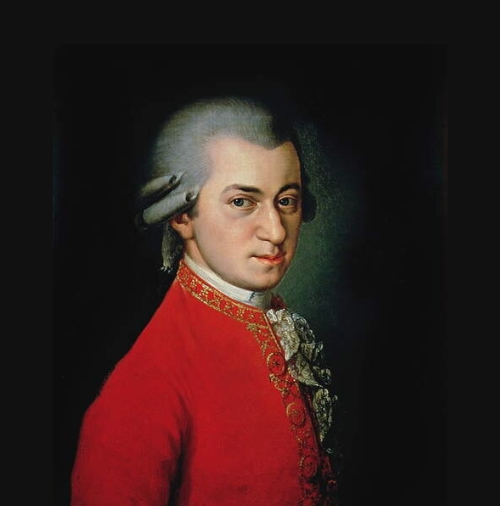

Wolfgang Amadeus Mozart is one of the most celebrated composers in the history of Western music. Renowned for his prodigious talent and prolific output, Mozart's works encompass many genres and are noted for their melodic beauty, structural perfection, and emotional depth. This column explores Mozart's extraordinary life, his groundbreaking contributions to music, and his enduring legacy.
Born in Salzburg, Austria, Mozart demonstrated remarkable musical ability from a very young age. By the age of five, he was composing his own music and performing before European royalty. His father, Leopold Mozart, a respected composer and musician, played a crucial role in nurturing his son's talents. Leopold's extensive musical knowledge and his position as a court musician in Salzburg provided young Mozart with a rich musical environment. Mozart's early travels across Europe, including visits to London, Paris, and Italy, exposed him to a variety of musical styles and traditions, which he adeptly incorporated into his own compositions.
Mozart's early compositions and performances quickly garnered acclaim. His first significant opera, "Mitridate, re di Ponto," premiered in Milan when he was just 14 years old, showcasing his ability to write complex and mature music. By his late teens and early twenties, Mozart had established himself as a leading composer in Vienna, the musical capital of Europe. His operas "Idomeneo" and "Die Entführung aus dem Serail" were particularly well received, cementing his reputation.
Mozart's oeuvre is vast and varied, encompassing symphonies, concertos, operas, chamber music, and sacred music. His later operas, such as "The Marriage of Figaro," "Don Giovanni," and "The Magic Flute," are masterpieces of the genre, combining compelling narratives with exquisite music. What sets Mozart's music apart is its ability to deeply move the listener, as he creates complex characters and conveys a wide range of emotions through his music, a feat that remains unparalleled.
In the realm of instrumental music, Mozart's symphonies, piano concertos, and string quartets stand out for their formal innovation and expressive depth. His Symphony No. 40 in G minor and Piano Concerto No. 21 in C major are exemplary of his genius, blending lyrical beauty with structural sophistication.
Mozart is often associated with the Classical style, characterized by clarity, balance, and transparency of texture. His music exemplifies the ideals of the Enlightenment, with its emphasis on order and proportion. Yet, within these formal constraints, Mozart's music is infused with profound emotional content and dramatic contrasts, reflecting his keen insight into the human condition.
Among Mozart's most revered works is his unfinished 'Requiem in D minor.' Commissioned anonymously in 1791, the piece was left incomplete at Mozart's death and later finished by his student Franz Xaver Süssmayr. The 'Requiem' is a powerful and moving composition, imbued with a sense of urgency and poignancy. Its unfinished state, coupled with the mystery surrounding its commission, has contributed to the enduring fascination with this work and stands as a testament to Mozart's enduring genius.
Mozart's influence on subsequent generations of composers and musicians is immeasurable. His works, cherished for their timeless beauty and emotional depth, continue to be performed and celebrated worldwide. Composers such as Beethoven, Schubert, and Mendelssohn were profoundly influenced by Mozart, and his music remains a cornerstone of the classical repertoire, a testament to the enduring legacy of his works.
The contributions of Wolfgang Amadeus Mozart to classical music are significant and revolutionary. His unparalleled ability to fuse technical mastery with profound expression has firmly established his status as one of the foremost composers in history. As we honor his genius, we also acknowledge his exceptional capacity to encapsulate the essence of human emotion and experience through his musical compositions.
For those passionate about classical music, exploring Mozart's works offers a journey into the heart of artistic brilliance. Join us at European Music Tours as we immerse ourselves in the world of Wolfgang Amadeus Mozart, experiencing his masterpieces in the magnificent settings where they continue to inspire and enchant audiences.